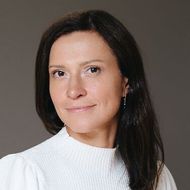First Digital Adult Reading Test Available on RuStore

HSE University's Centre for Language and Brain has developed the first standardised tool for assessing Russian reading skills in adults—the LexiMetr-A test. The test is now available digitally on the RuStore platform. This application allows for a quick and effective diagnosis of reading disorders, including dyslexia, in people aged 18 and older.
Reading skills are essential for a social and professional life. For millions of adults with reading impairments, the lack of a timely diagnosis can mean inaccessibility to quality education, career opportunities, and social support. However, for adults in Russia, there was no reliable tool or standard for objectively measuring reading proficiency or comparing results with normative data. The LexiMetr-A digital test fills this gap, offering professionals and researchers an effective way to assess the speed and accuracy of reading, as well as the level of reading comprehension.

Svetlana Dorofeeva
‘The development of LexiMetr-A was a logical consequence of our efforts to create linguistics-based tests for diagnosing speech and reading disorders in children. Adults with reading impairments also need age-appropriate tools,’ says Svetlana Dorofeeva, one of test developers and researcher at HSE University's Centre for Language and Brain.
The test has two parallel versions, one for initial diagnostics and the other for retesting or for assessing the effectiveness of interventions. The versions are balanced in terms of a number of psycholinguistic parameters, such as the length of words in syllables and in letters, the frequency of words, and the complexity of syntactic structures. Each text comes with a set of reading comprehension questions. After reading and marking errors, the application automatically calculates reading parameters and provides information about which syntactic structures were the most difficult. This level of detail is particularly useful for planning remedial work.
The application is aimed at specialists: speech therapists, neuropsychologists, and neurologists working in clinics, educational and research institutions. It includes age-appropriate cutoff levels for different user groups from 18 to 60+ years old, which ensures high diagnostic accuracy. The app replaces paper protocols, manual error counting, and voice recorders. All stages of the test—from text demonstration to error analysis—take place in a digital interface. The results, including audio recordings and markings, are uploaded in a useful format, making it easier to observe and draw conclusions.
The tool will enable informed decisions for selecting a future approach to working with reading difficulties or supporting adults with dyslexia. For instance, a confirmed dyslexia diagnosis could be taken into account by universities when determining a specific assessment system for students with such difficulties.
The developers emphasise that the test will be useful in both clinical and scientific application. The new tool collects an array of audio data and reading indicators, making it a valuable research tool for cognitive linguistics, psycholinguistics, and neuropsychology.

Olga Dragoy
‘Our goal is to make reading diagnostics more accessible and up-to-date. LexiMetr-A is not just a test; it is a practical tool that saves time, provides accurate results, and opens up new possibilities for helping people with dyslexia,’ comments Olga Dragoy, Director of the Centre for Language and Brain, HSE University.
See also:
Internal Clock: How Heart Rate and Emotions Shape Our Perception of Time
Our perception of time depends on heart rate—this is the conclusion reached by neuroscientists at HSE University. In their experiment, volunteers watched short videos designed to evoke specific emotions and estimated each video's duration, while researchers recorded their heart activity using ECG. The study found that the slower a participant's heart rate, the shorter they perceived the video to be—especially when watching unpleasant content. The study has been published in Frontiers in Psychology.
Scientists Identify Personality Traits That Help Schoolchildren Succeed Academically
Economists from HSE University and the Southern Federal University have found that personality traits such as conscientiousness and open-mindedness help schoolchildren improve their academic performance. The study, conducted across seven countries, was the first large-scale international analysis of the impact of character traits on the academic achievement of 10 and 15-year-olds. The findings have been published in the International Journal of Educational Research.
Intellectual Capital in the Face of Shocks: Russia and Iran Explore Internationalisation
In today's issue of Schola, Mariya Molodchik, Senior Research Fellow at the International Laboratory of Intangible-Driven Economy and Professor at the School of Economics and Finance at HSE University’s Campus in Perm, discusses a joint project with Iran University of Science and Technology, titled 'Internationalization of Companies from Developing Countries: The Role of Intellectual Resources in Response to Exogenous Shocks.'
HSE Researchers Introduce Novel Symmetry-Aware Neural Network Architecture
Researchers at the HSE Laboratory for Geometric Algebra and Applications have developed a new neural network architecture that can accelerate and streamline data analysis in physics, biology, and engineering. The scientists presented their solution on July 16 in Vancouver at ICML 2025, one of the world's leading conferences on machine learning. Both the paper and the source code are publicly available.
Students from HSE and Other Universities Carry Out Research Expedition at New Chersonesos
As part of the Rediscovering Russia student expedition programme, HSE University organised a research trip under the framework of the School for Young Humanities Scholars to the New Chersonesos museum and church complex in Sevastopol. The results of this expedition will form the basis for proposals on educational projects aimed at shaping young people’s historical memory of the role of Chersonesos, Crimea, and the Byzantine legacy in the history of Russian culture and statehood.
HSE Researchers Determine Frequency of Genetic Mutations in People with Pulmonary Hypertension
For the first time in Russia, a team of scientists and clinicians has conducted a large-scale genetic study of patients with pulmonary arterial hypertension. The team, which included researchers from the International Laboratory of Bioinformatics at the HSE Faculty of Computer Science, analysed the genomes of over a hundred patients and found that approximately one in ten carried pathogenic mutations in the BMPR2 gene, which is responsible for vascular growth. Three of these mutations were described for the first time. The study has been published in Respiratory Research.
First Caucasus School on Experimental Research and Cognitive Sciences Takes Places in Adygea
On September 17–20, 2025, the First Caucasus School on Experimental Research and Cognitive Sciences took place at the Gornaya Legenda venue of Adyghe State University (ASU). The event was organised by the ASU Experimental Linguistics Laboratory, the HSE Centre for Language and Brain, and the HSE Centre for Sociocultural and Ethnolinguistic Studies. The school brought together over 50 participants—students, doctoral candidates, and early-career researchers from across Russia, along with lecturers and speakers from France, Serbia, China, Turkey, Kazakhstan, and Uzbekistan.
HSE Scientists Reveal How Disrupted Brain Connectivity Affects Cognitive and Social Behaviour in Children with Autism
An international team of scientists, including researchers from the HSE Centre for Language and Brain, has for the first time studied the connectivity between the brain's sensorimotor and cognitive control networks in children with autism. Using fMRI data, the researchers found that connections within the cognitive control network (responsible for attention and inhibitory control) are weakened, while connections between this network and the sensorimotor network (responsible for movement and sensory processing) are, by contrast, excessively strong. These features manifest as difficulties in social interaction and behavioural regulation in children. The study has been published in Brain Imaging and Behavior.
Similar Comprehension, Different Reading: How Native Language Affects Reading in English as a Second Language
Researchers from the MECO international project, including experts from the HSE Centre for Language and Brain, have developed a tool for analysing data on English text reading by native speakers of more than 19 languages. In a large-scale experiment involving over 1,200 people, researchers recorded participants’ eye movements as they silently read the same English texts and then assessed their level of comprehension. The results showed that even when comprehension levels were the same, the reading process—such as gaze fixations, rereading, and word skipping—varied depending on the reader's native language and their English proficiency. The study has been published in Studies in Second Language Acquisition.
‘The Future Is Not Predetermined—We Shape It with the Decisions We Make Today’
The strategic technological project ‘National Centre of Science, Technology, and Socio-Economic Foresight’ at HSE University spans horizons of 10 to 30 years and involves developing new methodologies of scenario analysis. It brings together researchers from different fields and helps to form a holistic vision of the future. The aim of the project is not only to produce forecasts but also to generate practical recommendations for government and business. Anastasia Likhacheva, Dean of the HSE Faculty of World Economy and International Affairs, explains why it is important to learn to ask the right questions about the future.


